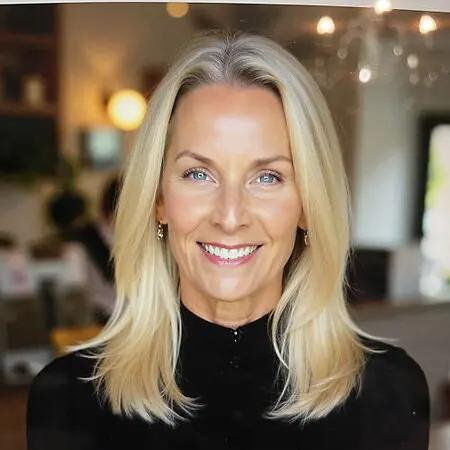Petra Renee Lindquist Kirberg

Petra Lindquist-Kirberg is a dynamic leader at the intersection of healthcare and advanced technologies, currently serving as Principal Account Executive for the MedTech Division at iMerit Technology. With a background in nursing and psychology from Sonoma State University, Petra brings a human-centered perspective to the world of artificial intelligence, machine learning, and digital health. Her career spans impactful roles in telehealth, remote patient monitoring, healthcare software, and AI-driven data solutions—always with a mission to improve patient outcomes and enable clinical excellence. At iMerit, she leads strategic sales and business development initiatives for AI in medical imaging, robotic surgery, and life sciences, collaborating with expert teams across the globe to deliver secure, high-quality data labeling for enterprise-grade applications.
With over two decades of experience, Petra is also a mentor and advocate for women in leadership and STEM. She serves on the advisory council for the Women in Leadership Executive Program at the University of California, Riverside, and is a longtime volunteer supporting women in sports and health causes, including breast cancer fundraising. Known for her passion, empathy, and deep industry insight, Petra has been honored for her leadership, including recognition as a “Queen of Hearts” for her community work. Through every role, she brings a unique blend of clinical knowledge, sales acumen, and innovative vision that continues to shape the future of healthcare and technology.
• BSN
• Sonoma State University- B.A., B.S.N.
• Queen of Hearts
• Presidents Club Winner
• Team Luna Chix
• Team Bay Area Mtn Bike Luna Chix
• The Breast Cancer Fund
• LIV Chix of Marin
• CAPITAL SISTERS INTERNATIONAL INC
• Redwood High School, TUHSD
What do you attribute your success to?
I attribute my success to a combination of grit, perseverance, and an unwaveringly positive outlook—I’ve always been a half-glass-full person who believes challenges are simply opportunities to grow. My tenacity and love of learning push me to keep evolving, while my passion for mentoring others allows me to share knowledge and help open doors for the next generation.
As a single mom, I’m deeply motivated to succeed not only for my children, but also to show other women that it’s possible to thrive, lead, and make an impact even in the face of obstacles. I thrive on building connections, fostering relationships, and solving problems, and I believe that success is best when it’s shared and lifts others up along the way.
What’s the best career advice you’ve ever received?
The best career advice I’ve ever received is that “no” doesn’t mean never — it often just means not right now.” I’ve learned not to take rejection personally, but to recognize that timing plays a huge role in opportunities, whether it’s a new role, a partnership, or a big idea.
I’ve also come to see that failures are learning opportunities. When things don’t go my way, I remind myself it’s a chance to grow and get better the next time. That mindset has helped me stay resilient and keep moving forward.
Another lesson I carry with me is to never rely on just one champion inside an organization. Building a network of advocates and allies ensures broader support, fresh perspectives, and a stronger path to success.
What advice would you give to young women entering your industry?
My number one piece of advice is to network, network, network. Build genuine relationships, ask questions, and never be afraid to reach out and connect.
Seek out a mentor—someone who can guide you, challenge you, and help you see possibilities you may not yet see in yourself. Stay open to learning and equally open to failing, because both are essential parts of growth.
Most importantly, share your dreams out loud. The more people you tell, the more you’ll hold yourself accountable—and the more opportunities will come your way from people who want to support you on your journey.
What are the biggest challenges or opportunities in your field right now?
The Biggest Challenge in Healthcare AI:
From my perspective, the biggest challenge is building trust and adoption. Healthcare is such a careful, highly regulated industry, and rightly so—lives are at stake. That means AI tools have to be backed by rigorous data, proven safe across diverse patient populations, and integrated in a way that clinicians can trust. Without high-quality data and validation, even the best AI models won’t make it into everyday use.
The Opportunities:
On the flip side, I see incredible opportunity. AI can help ease clinician burnout by taking over repetitive tasks like documentation and coding, while freeing providers to spend more time with patients. The future of multimodal AI—bringing together imaging, pathology, and clinical data—opens the door to personalized medicine at scale. And ultimately, AI gives us the chance to make care more accessible, efficient, and patient-centered, which is what it’s all about.
What values are most important to you in your work and personal life?
The values I hold closest are loyalty, accountability, and kindness. To me, it’s simple—if you say you’ll do something, follow through; show up fully, and treat people with respect.
I also believe in the power of curiosity and joy. I try to approach my work and life with curiosity, always learning, asking questions, and staying open to new ideas. And joy matters—because I think success feels more meaningful when you can laugh, celebrate wins, and make the journey fun along the way.
At the end of the day, I want to be someone who leaves people and projects better than I found them, and who inspires others to do the same.